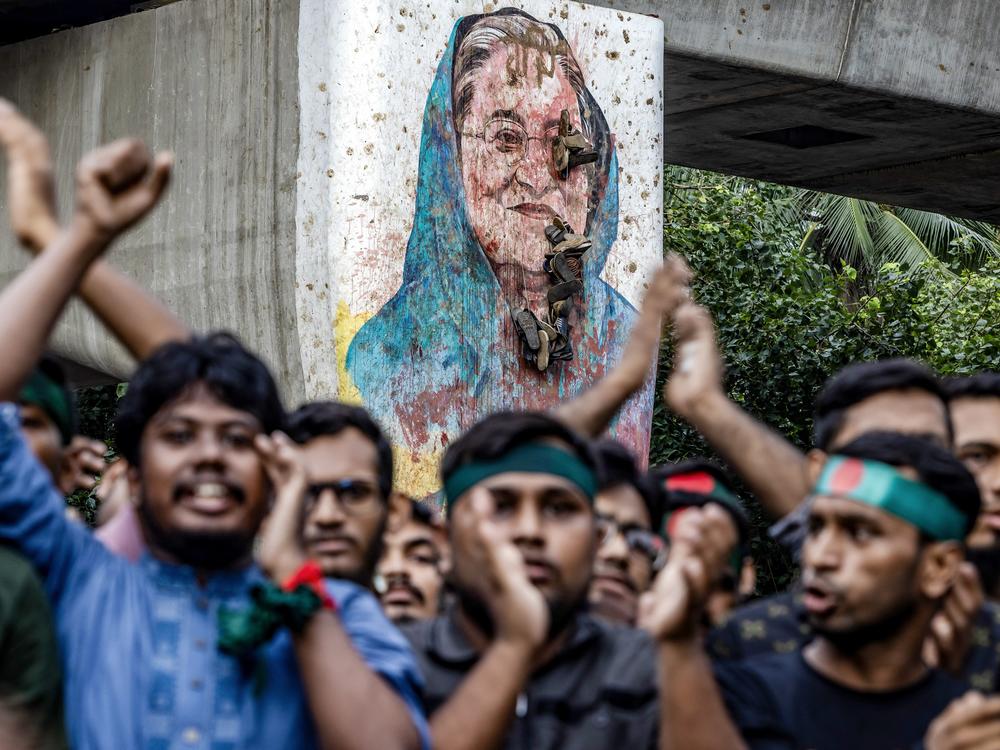Section Branding
Header Content
Ex-Bangladesh leader demands probe into protest killings, and is named in murder case
Primary Content
DHAKA, Bangladesh — In her first statement since fleeing Bangladesh last week, the country's former prime minister denied responsibility for the deaths of more than 300 people during protests that led to her ouster.
Sheikh Hasina issued her statement in Bengali on Tuesday through her son, Sajeeb Wazed. He has has frequently taken to social media since his mother and aunt left Bangladesh in a military helicopter as tens of thousands of protesters marched onto her residence on Aug. 5.
Her statement came hours after a Bangladeshi court ordered police to open a murder investigation into her and six top figures from her government. The case involves the death of a grocery shop owner as police cracked down on protesters on July 19.
It marks the first legal case against Hasina. More are expected.
Rizwana Hasan, a member of Bangladesh's new interim government, led by Nobel Peace laureate Muhammad Yunus and formed days after Hasina fled the country, said, “For the sake of the victims, we can try to ensure that no delay takes place in the investigation of these allegations.”
“The government feels the pressures of ensuring proper justice,” said Hasan, referring to the families of protesters and others who were killed. “So we can step in and ensure that proper evidence is collected, that the family does not feel intimidated for filing,” she told journalists.
The student-led movement to remove Hasina from power began as peaceful protests against job quotas for the descendants of war veterans. Students said the quotas were being used to hand over lucrative government positions to cronies. Loyalists of the former prime minister attacked protesters, and then police and some paramilitary forces joined the fray, killing dozens. This helped transform the protests into a mass movement to oust the former prime minister.
In her statement on Tuesday, Hasina blamed the protest deaths on “vandalism, arson and violence” instigated by “the movement,” referring to the student-led protests. She also claimed people died “as a result of terrorist attacks.”
“I demand that those involved in this killing and vandalism be properly investigated and the culprits be identified and punished accordingly,” she said.
Hasina said she was also demanding justice after rioters burned down the house of her father, Sheikh Mujibur Rahman, who led Bangladesh to independence in 1971. That house was converted into a museum.
In her statement, the former prime minister referred to the assassination of her father and much of her family in that same house during a coup on Aug. 15, 1975. Hasina and her sister were abroad at the time. “And the memory that was the basis of our survival has been burnt to ashes,” the former prime minister wrote, referring to the torched home. “I want justice from the countrymen."
Hasina called on Bangladeshis to observe this Aug. 15, once a national day of mourning, “with due dignity and solemnity.”
Her call came after the interim government announced that there would be no public holiday on Thursday, effectively denying a chance to supporters of the former prime minister to gather around her former family home.

